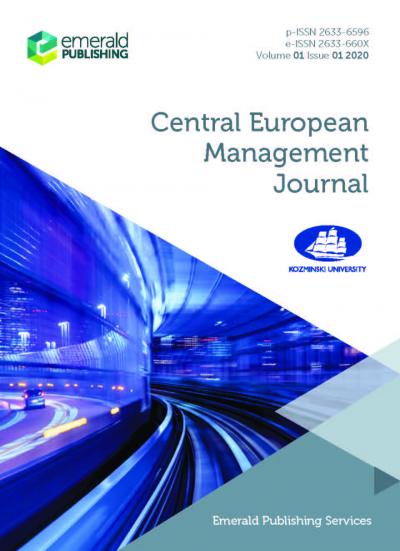Spending Reviews – a Tool to Support the Effcient Management of Public Funds
Marta Postuła
University of Warsaw

2017 25 (2) Central European Management Journal
DOI 10.7206/jmba.ce.2450-7814.196








